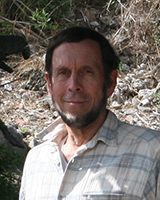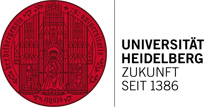“International exchanges are invaluable”

Prof. Dr. Robert Isaak, Visiting Professor of Entrepreneurship at University of Mannheim
Teaching and research stays at Alfred Weber Institute for Economics/Sociology in 1996/1997 and 2006/2007
Where and in what position are you currently working?
I’m Visiting Professor of Entrepreneurship at the Chair of Small and Medium Sized Companies and Entrepreneurship at the University of Mannheim as well as Faculty Advisor for Entrepreneurial Projects at Mannheim Business School. Moreover I’m Emeritus Professor of Management and Public Policy at Pace University, New York, and am annually teaching a ‘Public Policy’ seminar in an executive MBA program.
When, how long and in what position did you stay at Heidelberg University?
First I was an exchange student in Heidelberg coming from Pepperdine University in Malibu (U.S.) in 1963/1964. Then later in 1996-1997 I was a Senior Fulbright Scholar teaching ‘Ecological Theory, Competitiveness and Environmentally Oriented Entrepreneurship,’ at the Alfred Weber Institute, where a decade later I also taught a course on ‘Cross-cultural Management: Replicating Silicon Valley.’ And now in fall 2017 I will team-teach ‘American Political Theory and Culture’ with Prof. Manfred Berg at Heidelberg Center for American Studies.
Why did you decide in favour of the Ruperto Carola?
I received a scholarship for a student exchange year at Heidelberg University.
What have you learned in Heidelberg? What experiences have been particularly valuable?
In addition to learning the German language, gaining appreciation for German Lieder, I met my wife Gudrun Kamm and increased my knowledge of German history, philosophy, politics, and economics. The student year in Heidelberg was a key turning point in my personal and professional life (I literally ‘lost my heart in Heidelberg’). Since staying in Heidelberg my professional activities have continued to deepen my knowledge and appreciation for the social market economy and the German culture. The social market economy since World War II is a true model for development, but with prerequisites difficult to replicate. One result of my studies was to be appointed Director of a German-American Institute at Pace University in Manhattan. This encouraged the creation of student exchanges first between Heidelberg University and Pace University and later between Pace and the University of Mannheim after the field of Business Administration was moved from Heidelberg to Mannheim.
How did your career continue after your time in Heidelberg?
Following the student year in Heidelberg I completed my B.A. at Stanford University, my M.A. at San Jose State University and my Ph.D. at New York University. My dissertation was entitled: ‘International Integration and Foreign Policy Decision-making’ focusing upon the case study of Germany’s role in European integration including personal interview data from Ludwig Erhard, Egon Bahr, George McGhee, etc. To illustrate what I have continued to learn as a permanent student, I have since published eleven books altogether, many of them based on the research done in Heidelberg. Moreover I taught at various higher education institutes in different countries, e.g. at New York University, L'Ecole Supérieure de Commerce de Grenoble in France and Franklin University in Lugano, Switzerland. As a post-doc I also did research at Columbia University in New York. My career can best be described as an adventure in international political economy with a recent focus in articles upon replicating Silicon Valley, ecopreneurship, the risks of unregulated globalization and international finance and the prerequisites for job creation for young people.
What is your view of the German scientific system in comparison to that of your home country or to that of other countries where you may have conducted research?
The German system is best at systematic follow-through aimed at narrow targets. An overemphasis upon publication in highly ranked professional journals discourages thinking out of the box and the intellectual risk-taking necessary for winning a Nobel prize in economics (although, as we know, this narrow focus works very well in the natural sciences – evidenced by the Nobel prizes awarded to professors in Heidelberg).
It is not that highly ranked articles are not necessary: they are simply not sufficient, particularly in a time of global turbulence where flexible, open theoretical perspectives are critical. Professors, after all, become role models for students, who will need to be flexible professionally in order to become as self-sufficient as possible in an extremely challenging environment. Creativity needs to be emphasized in order to counter the hyper-efficiency effects and time constraints of the Bologna educational straight-jacket.
In your opinion, what is the importance of international exchanges for researchers?
Such exchanges are invaluable. My research on cross-cultural clusters confirms this, as illustrated by the significant contributions of foreign entrepreneurs and engineers in the development of Silicon Valley – as well as the return of many of these creators to their home countries. Two articles published this year alone stemmed from international experiences: one from an ‘Ecopreneurship Symposium’ in Umea, Sweden; the second on the scarcity of Eurozone bank funding for start-ups and small businesses which create jobs, co-authored with Michel Bouchet, a former colleague at SKEMA in Sophia Antipolis, France.

